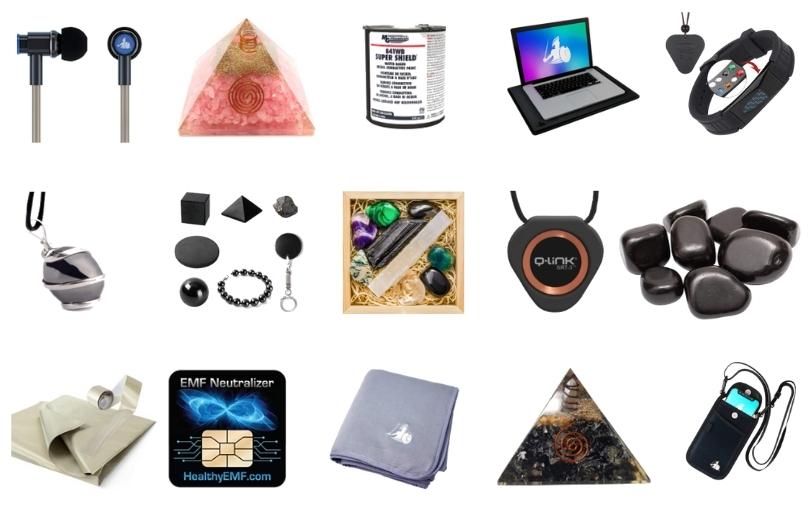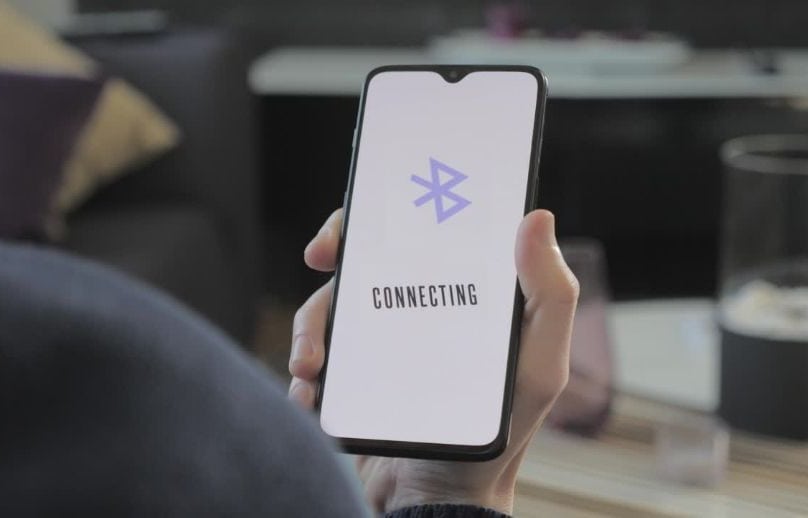In today’s wireless environment, being mindful of electromagnetic field (EMF) exposure isn’t just about convenience—it’s about creating habits that protect our wellbeing.
Here are 14 practical steps to help you reduce EMF exposure while still benefiting from modern technology.
- 1. Create Low-EMF Zones
- 2. Practice Safe Device Storage
- 3. Optimize Your Workspace for EMF Protection
- 4. Implement "EMF Curfews"
- 5. Smart Device Usage Habits
- 6. Optimize Your Home Network for Lower EMF
- 7. Practice Mindful Mobile Use
- 8. Create a Low-EMF Sleep Environment
- 9. Regular EMF Detox Sessions
- 10. Smart Travel EMF Protection
- 11. Mindful Device Settings
- 12. Build Low-EMF Traditions
- 13. EMF-Conscious Home Design
- 14. Smart Meter and Appliance Management
1. Create Low-EMF Zones
Designate certain areas in your home as low-EMF spaces, particularly bedrooms and frequently used living areas:
- Remove wireless devices from bedrooms
- Keep WiFi routers out of primary living spaces
- Use EMF shielding materials in key areas
- Consider EMF-blocking paint or fabrics for sensitive spaces
2. Practice Safe Device Storage
Minimize direct contact with EMF-emitting devices:
- Use EMF-protective phone cases (properly, if used wrong they can increase your exposure)
- Carry phones in EMF-shielding bags rather than against your body
- Keep devices at least 6 inches from your body when possible
- Use hollow air-tube headphones instead of traditional earbuds
3. Optimize Your Workspace for EMF Protection
Transform your desk setup to minimize EMF exposure:
- Use wired keyboards and mice instead of Bluetooth
- Keep your laptop on a EMF-shielding pad and ideally not on your lap at all
- Position your workspace away from the WiFi router
- Use Ethernet connections instead of WiFi when possible
4. Implement “EMF Curfews”
Reduce nighttime EMF exposure:
- Turn off WiFi routers at night using a timer or invest in a low EMF router like the JRS Eco.
- Keep phones in airplane mode while sleeping
- Unplug unnecessary electronic devices
- Use battery-powered alarm clocks instead of phones
5. Smart Device Usage Habits
When using phones and tablets:
- Use speaker mode, wired headphones with a ferrite bead or air-tube headphones
- Hold devices away from your body
- Text instead of call when possible
- Enable airplane mode when full connectivity isn’t needed
6. Optimize Your Home Network for Lower EMF
Make informed choices about your home connectivity:
- Position WiFi routers in less-frequented areas
- Use WiFi timer switches for automatic control
- Consider switching to hardwired internet connections
- Use EMF meters to detect and address hotspots
7. Practice Mindful Mobile Use
Develop habits that reduce EMF exposure:
- Keep devices in airplane mode when not needed
- Download content for offline use
- Use voice commands to reduce handling time
- Check signal strength (weaker signals mean higher EMF emission)
8. Create a Low-EMF Sleep Environment
Protect your sleep space from electromagnetic fields:
- Remove all wireless devices from the bedroom
- Use shielded power strips
- Consider EMF-blocking bed canopies
- Keep smart meters away from bedroom walls
9. Regular EMF Detox Sessions
Schedule regular breaks from electromagnetic exposure:
- Plan outdoor activities in nature
- Create tech-free rooms or areas
- Use EMF measuring tools to identify safe spaces
- Practice grounding exercises outdoors
10. Smart Travel EMF Protection
Maintain EMF awareness while traveling:
- Use airplane mode during transit
- Avoid using devices in metal vehicles (signals bounce)
- Carry EMF protection accessories
- Choose accommodations with hardwired internet options
11. Mindful Device Settings
Optimize your devices to minimize EMF emission:
- Disable WiFi and Bluetooth when not in use
- Keep devices updated for better transmission efficiency
- Use “Low Power Mode” more frequently
- Monitor and adjust cellular data settings
12. Build Low-EMF Traditions
Create regular activities in low-EMF environments:
- Outdoor family time
- Electronics-free meals
- Reading with physical books
- Non-electronic exercise routines
13. EMF-Conscious Home Design
Consider EMF levels in your home setup:
- Use EMF meters to map your space
- Install EMF filters on electrical circuits
- Choose low-EMF appliances when possible
- Consider shielding paint or materials for high-exposure areas
14. Smart Meter and Appliance Management
Take control of your home’s EMF sources:
- Request analog meters if possible
- Keep appliances unplugged when not in use
- Use EMF-reducing power strips
- Position large appliances away from frequently used areas
Remember that EMF protection isn’t about completely avoiding technology—it’s about creating thoughtful boundaries that allow you to enjoy modern conveniences while minimizing potential health impacts. Start with small changes and gradually build habits that work for your lifestyle.
The key is finding your personal balance point where technology serves you while maintaining your wellbeing. As you implement these practices, consider using EMF meters to measure the difference in your environment. Many people report feeling better after reducing their EMF exposure, experiencing improvements in sleep quality, energy levels, and overall wellness.
Consider keeping a journal of changes you make and any improvements in how you feel. This can help you identify which EMF reduction strategies work best for you and motivate you to maintain these healthy habits long-term. Remember that EMF protection is an ongoing process—it’s okay to adjust your approach as technology and your circumstances change.
For optimal EMF protection, consider investing in:
- EMF measuring devices to identify hotspots
- Air-tube headphones for safer phone use
- EMF-shielding materials for high-exposure areas
- Timer switches for wireless devices
- Quality Ethernet cables for hardwired connections


